-
Battle casualties, desertions reduce ISIS ranks by 20%: U.S.
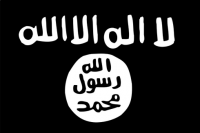
A U.S. intelligence report, cited yesterday by a White House spokesman, says that the number of ISIS fighters in Syria and Iraq has fallen from about 31,000 to 25,000. Senior U.S. officials point to battlefield casualties and desertions as the main reasons for the roughly 20 percent decline, adding that the intelligence report offers evidence that the U.S.-led campaign, which relies mostly on air attacks on ISIS targets, was working.
-
-
F-15s to protect skies over Super Bowl 50
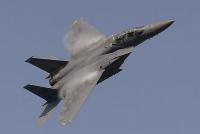
U.S. Air Force planes will be protecting the skies over the Super Bowl this weekend. Civil Air Patrol National Commander Maj. Gen. Joe Vazquez said F-15 Eagles from the Air National Guard will be on the ready to escort any unidentified aircraft from the area.
-
-
Saudi Arabia to send ground troops to Syria
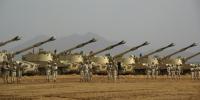
Saudi Arabia said it was ready to send ground troops to Syria to fight ISIS. Saudi sources added that thousands of Saudi Special Forces could be deployed, probably in coordination with Turkey. Saudi gains in the war against pro-Iranian rebels in Yemen have freed Saudi resources to be directed to Syria, and the fact that Russia and the Assad regime focus their military effort on fighting the moderate rebels means that these rebels need more outside help to withstand the pressure both from ISIS and the Syrian regime and its allies.
-
-
Two Israeli teenagers receive long sentences for murdering Palestinian boy
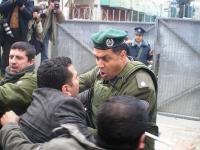
Two Israeli teenagers were sentenced to long jail terms for kidnapped the Palestinian teenager Mohammed Abu Khdeir in 2014, and burning him to death. The older of the two, aged 17, was sentenced to life in prison, while the other teenager, a 16-year old, was sentenced to twenty-one years. The 16-year-old Abu Khdeir was grabbed off the street and beaten. He was then taken to a forest outside Jerusalem, and was set afire while he was still alive.
-
-
U.K. regulators to investigate political broadcast critical of Turkey, Muslims
OFCOM, the U.K. communication regulator, said it was considering more than thirty complaints about a political broadcast by UKIP, the Euro-skeptic, anti-immigration populist party. OFCOM said that UKIP’s Wednesday night broadcast on ITV and the BBC may have crossed the line in giving racial offense, promoting Islamophobia, and engendering bias toward Turkey.
-
-
Bin Laden’s 9/11 plot “inspired” by EgyptAir flight 990 crash: Al-Qaeda
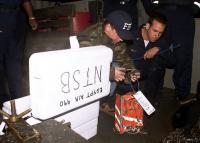
Osama bin Laden planned the 9/11 terrorist attacks after being “inspired” by a chance discussion about a plane crash into the Atlantic Ocean. An al-Qaeda publication claims that bin-Lade, discussing EgyptAir Flight 990 — which crashed into the Atlantic Ocean during its journey from Los Angeles to Cairo, killing all 217 people on board – asked: “Why didn’t he crash it into a building?”
-
-
U.K.’s anti-radicalization program “sowing mistrust and fear” in Muslim communities: Watchdog
David Anderson QC, the independent reviewer of the U.K.. terrorism laws, said that the government’s flagship anti-radicalization program, Prevent, should be reviewed because it is sowing mistrust and fear in the Muslim community. Anderson said that the program, particularly its requirement that schools spot and report signs of radicalization in students, has become a “significant source of grievance” among British Muslims, encouraging “mistrust to spread and to fester.”
-
-
Britain: Russia’s goal in Syria is to carve out Alawite mini-state for Assad
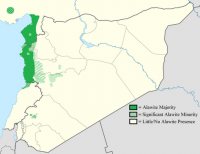
Philip Hammond, Britain’s foreign minister, has said that Russia’s real goal in Syria was to carve out an Alawite mini-state in Syria for its ally President Bashar al-Assad. Hammond said this was the reason why Russia’s massive bombing raids have targeted the Syrian opposition forces instead of fighting ISIS. Hammond’s comments offered a rare insight into the Western assessment of the Kremlin’s objectives for Syria.
-
-
Calls for banning Muslims from entering U.S. impractical, harmful: Expert
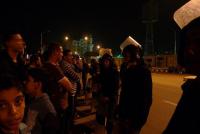
Duke sociologist Christopher Bail, who studies how anti-Muslim organizations use social media, says that calls to ban immigration of Muslims to the United States are missing two important points. First, there is no conceivable mechanism whereby the United States could identify Muslims — short of visual cues such as headdress or religious garb, which are not worn by most Muslims. Second, and perhaps more importantly, it is surprising that people think that groups such as ISIS could not disguise terrorists they want to send to the United States as non-Muslims.
-
-
DEA, European authorities uncover massive Hezbollah drug, money-laundering operation

The U.S. Drug Enforcement Administration (DEA) yesterday announced what the agency described as a “significant enforcement activity,” including arrests targeting Lebanese Hezbollah’s External Security Organization Business Affairs Component (BAC), which is involved in international criminal activities such as drug trafficking and drug proceeds money laundering. These proceeds are used to purchase weapons for Hezbollah for its activities in Syria.
-
-
Brennan Center sues DHS, DOJ to make “Countering Violent Extremism” records public

The Brennan Center for Justice at NYU School of Law last week sued DHS and the Department of Justice under the Freedom of Information Act (FOIA) for records pertaining to an inter-agency initiative known as “Countering Violent Extremism” (CVE). The CVE initiative is designed to identify and preempt Americans from becoming involved in “violent extremism” and is being implemented in Muslim communities in several parts of the country, including the three formally designated pilot cities of Los Angeles, Boston, and Minneapolis-St. Paul.
-
-
Colombia urges U.S. to remove FARC from U.S. terror watch list
Colombia’s president Juan Manuel Santos said in an interview that he would like the United States to remove the Revolutionary Armed Forces of Colombia (FARC), a Marxist rebel group, which had fought successive Colombian governments since the early 1960s, from the U.S. list of terrorist organizations. He also said he would ask the U.S. authorities to suspend drug warrants against FARC commanders if a deal is finally signed to bring to an end the country’s five-decade civil war.
-
-
Canada’s intelligence agency halts intelligence sharing with international partners
Canada’s Communications Security Establishment (CSE), the country electronic signals intelligence agency, said it has stopped sharing intelligence with several close international partners after disclosing it had illegally collected the communication metadata of Canadian citizens in the process of eavesdropping on foreign communications. In a report to parliament last Thursday, CSE said the breach was unintentional, and that it had been discovered internally in 2013.
-
-
Boko Haram attacks force more than 1 million children from school in northeastern Nigeria
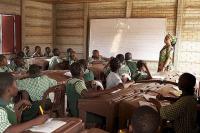
Violence and attacks against civilian populations in northeastern Nigeria and its neighboring countries have forced more than one million children out of school, UNICEF said on Tuesday. The number of children missing out on their education due to the conflict adds to the estimated eleven million children of primary school age who were already out of school in Nigeria, Cameroon, Chad, and Niger before the onset of the crisis. Across Nigeria, Cameroon, Chad, and Niger, over 2,000 schools remain closed due to attacks by Islamist group Boko Haram and the military campaign conducted against it — some of these schools for more than a year — and hundreds have been attacked, looted, or set on fire.
-
-
Boko Haram burns children to death in attack on Nigerian village
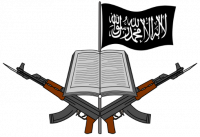
Boko Haram Islamist extremists have burned children to death in an attack on the Nigerian village of Dalori Saturday evening. In all, sixty-five people died in the attack. The militants set the buildings on fire, and as the fire spread, they shot people who were attempting to escape the flames.
-
- All
- Regional
- Water
- Biometrics
- Borders/Immig
- Business
- Cybersecurity
- Detection
- Disasters
- Government
- Infrastructure
- International
- Public health
- Public Safety
- Communication interoperabillity
- Emergency services
- Emergency medical services
- Fire
- First response
- IEDs
- Law Enforcement
- Law Enforcement Technology
- Military technology
- Nonlethal weapons
- Nuclear weapons
- Personal protection equipment
- Police
- Notification /alert systems
- Situational awareness
- Weapons systems
- Sci-Tech
- Sector Reports
- Surveillance
- Transportation
Advertising & Marketing: advertise@newswirepubs.com
Editorial: editor@newswirepubs.com
General: info@newswirepubs.com
2010-2011 © News Wire Publications, LLC News Wire Publications, LLC
220 Old Country Road | Suite 200 | Mineola | New York | 11501
Permissions and Policies
Editorial: editor@newswirepubs.com
General: info@newswirepubs.com
2010-2011 © News Wire Publications, LLC News Wire Publications, LLC
220 Old Country Road | Suite 200 | Mineola | New York | 11501
Permissions and Policies
